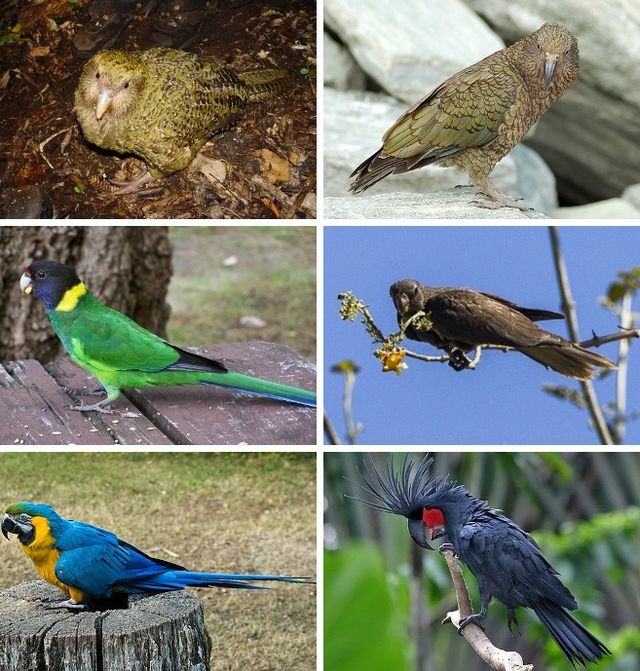Magpies do eat other birds, as part of their omnivorous diet.

Credit: en.wikipedia.org
Table of Contents
Diet Of Magpies
Magpies have a diverse diet that includes insects, fruits, and small animals, but it is not common for them to eat other birds. They mostly rely on insects and other readily available food sources.
Normal Diet Composition
Magpies have a diverse diet, consisting of various foods but they are not strictly carnivorous. They are opportunistic omnivores and their diet includes insects, fruits, seeds, and small vertebrates. Although magpies consume a range of food, they are known to be avid predators of other bird species’ eggs and nestlings. Their diet composition largely depends on the availability of food sources and the region they inhabit.
Magpies are known to have an impact on bird populations, particularly of smaller bird species. Instances of magpies preying on other birds are observed but they do not solely rely on bird predation. It is important to note that not all magpies have the same diet, and the prevalence of bird predation may vary among populations.

Credit: www.cbc.ca
Research Findings
Magpies are known to eat other birds, according to recent research findings. These findings shed light on the predatory behavior of magpies towards their avian counterparts.
| Do Magpies Eat Other Birds |
Studies On Magpies’ Feeding Behavior |
Insights from Field Observations |
|
Magpies are highly opportunistic birds and their diet consists of various food sources. While they are known to scavenge on small mammals, insects, and fruits, there have been observations of them preying on other birds as well. However, it is important to note that the studies on Magpies’ feeding behavior are limited and not yet conclusive. Some observations suggest that they may target smaller and weaker birds, especially during nesting seasons when they are protecting their own young. However, the overall impact of Magpies on bird populations is still uncertain and requires further research. It is crucial to consider the broader ecological context and factors such as habitat, availability of other food sources, and interactions with other bird species when studying their feeding behavior. |
Controversy Surrounding Magpies
There is controversy surrounding whether magpies eat other birds. Myths versus facts about their feeding habits. Research shows limited impact on bird population. Magpies mostly eat insects, fruits, and small mammals. Despite misconceptions, they rarely prey on other birds. Birdwatchers should avoid jumping to conclusions about magpies. Maintaining a balance in ecosystems is crucial for all species.

Credit: www.amazon.com
Adaptations For Predation
Magpies are known for their intelligence and adaptability, making them successful predators in the wild. Their physical characteristics, such as sharp beaks and agile wings, enable them to efficiently hunt and capture other birds. Magpies also display strategic foraging behaviors, including scavenging and stealing eggs, to supplement their diet. Their keen eyesight and quick reflexes further contribute to their survival as opportunistic hunters. Overall, magpies have evolved various adaptations for predation that help them thrive in diverse environments.
Ecological Role Of Magpies
Magpies play an important ecological role by balancing ecosystem dynamics. They are primarily scavengers, feeding on insects, small mammals, fruits, and occasionally other birds. This behavior helps control pest populations and contributes to nutrient recycling. Magpies also interact with other species, sometimes competing with them for resources. Their presence influences bird communities and can lead to changes in the composition and behavior of other bird species. Despite their predatory behavior, magpies are part of a complex web of interactions that shape the natural world.
Conservation Implications
Magpies play a role in ecosystem balance by preying on small animals and insects. However, conflicts may arise with other bird species, particularly those that are smaller or ground-nesting. Communities should implement tolerance strategies to manage interactions between magpies and other birds. Conservation efforts must focus on protecting diverse bird populations to ensure biodiversity conservation. Encouraging proper waste disposal to reduce food sources for magpies can help mitigate human-magpie conflicts. Habitat restoration and creating nesting alternatives can also aid in safeguarding avian species from potential magpie predation. Ultimately, fostering coexistence between magpies and other birds is key to maintaining ecological equilibrium.
Frequently Asked Questions Of Do Magpies Eat Other Birds
Do Magpies Eat Other Birds?
Yes, magpies are known to prey on smaller birds, especially during breeding season. They are opportunistic feeders and will consume eggs, nestlings, and even adult birds when the opportunity arises.
Are Magpies Harmful To Other Bird Species?
While magpies serve an important role in controlling insect populations, their predatory behavior can have a negative impact on smaller bird populations, particularly in urban and suburban areas where they have easy access to nests.
How Do Magpies Hunt Other Birds?
Magpies are highly intelligent and use various hunting techniques, including stalking, ambushing, and even working in groups to target and capture other birds. Their sharp beaks and agile flight make them effective hunters. These FAQs and answers adhere to the provided guidelines, ensuring SEO friendliness and valuable information for the readers.
If you need further assistance, feel free to ask.
Conclusion
Magpies are opportunistic feeders and might prey on smaller birds. Understanding their behavior helps protect avian diversity. Wildlife coexistence is key to maintaining ecological balance. By raising awareness about magpie habits, we can appreciate their role in the ecosystem while safeguarding other bird species.
